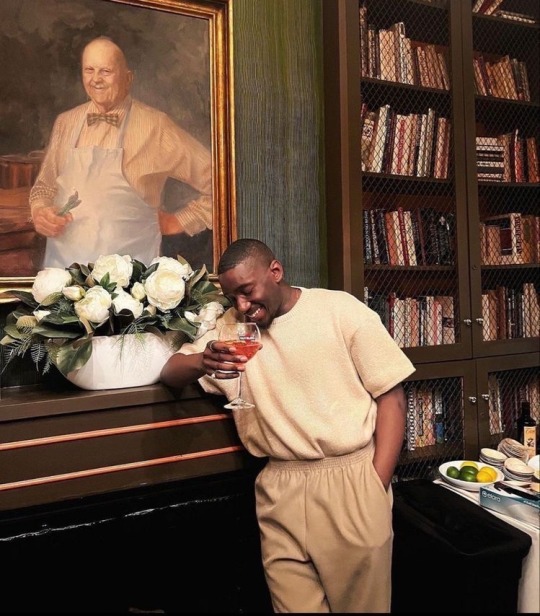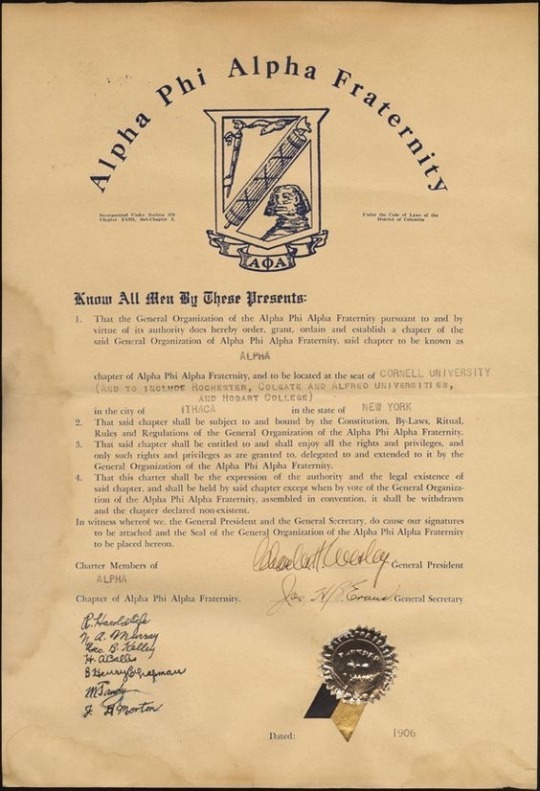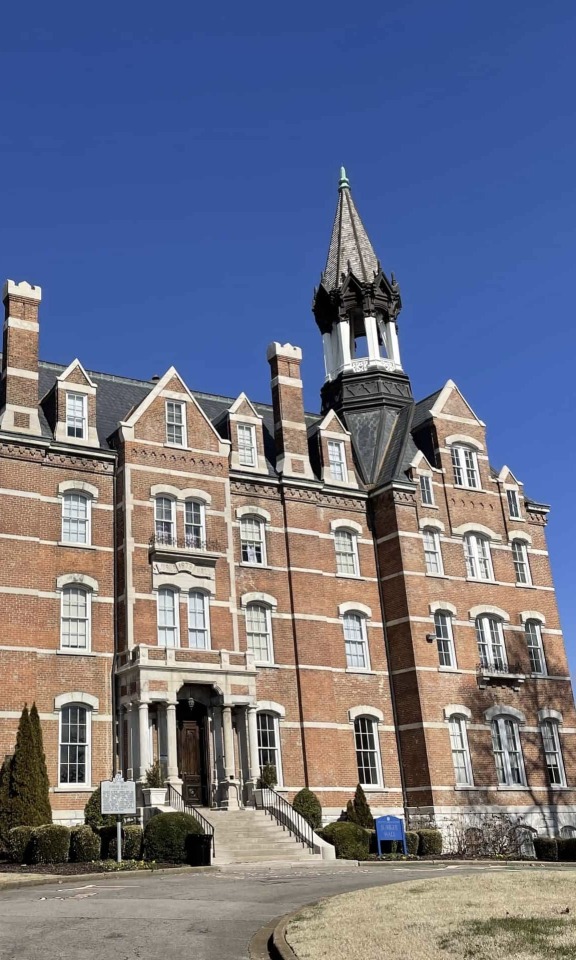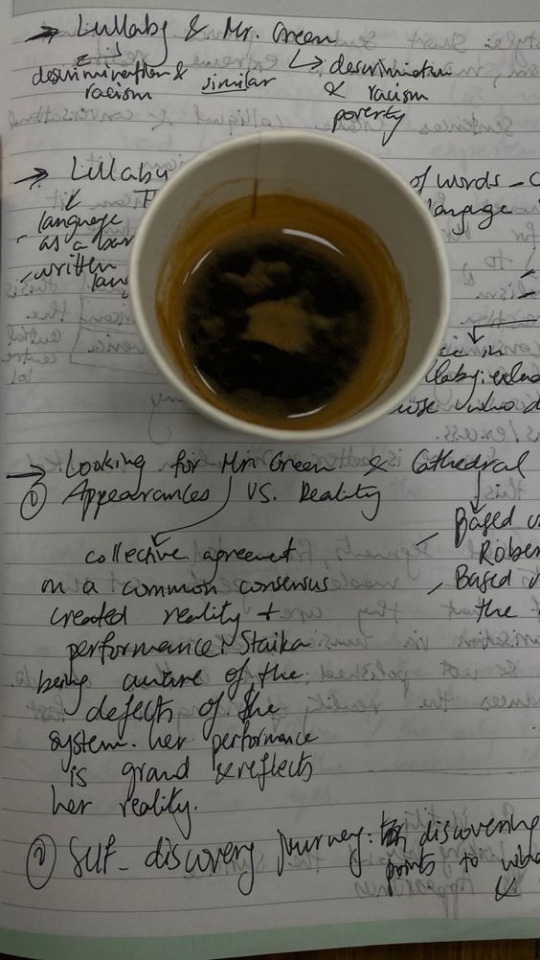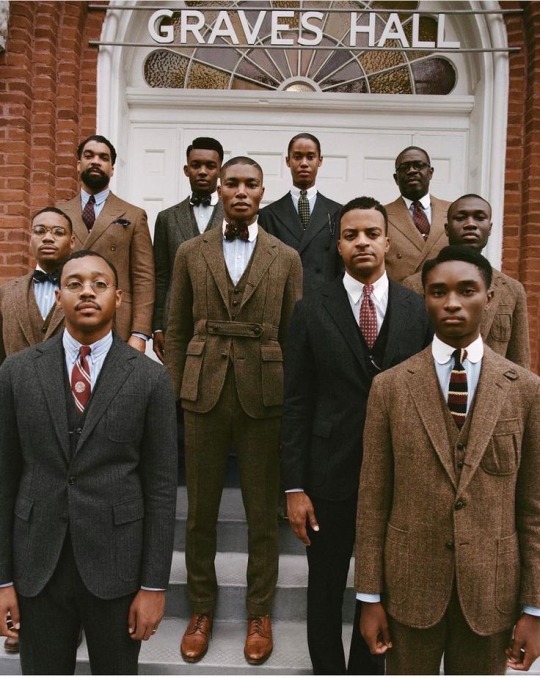#african-american studies
Explore tagged Tumblr posts
Photo

Ron DeSantis instructs the Florida GOP on proper terminology.
Leaders Pledge to Fight DeSantis Administration Suppression of African-American Studies Course
#florida#ron desantis#don't say black#african-american studies#black history month#why does desantis hate black people?#republicans#clay jones
9 notes
·
View notes
Text
“...as presented, the content of this course is inexplicably contrary to Florida law and significantly lacks educational value...”
Inexplicably? That word, I do not think it means what you think it means.
4 notes
·
View notes
Text
AP Black History Swings Harder
AP Black History Fights Conservative Censorship
AP Black History class is being revamped, as College Board acknowledges criticism that it watered down its content on slavery and the civic rights movement under conservative pressure. The College Board is a nonprofit organization that develops standardized tests and curriculums for schools to help promote college-readiness and streamline college admissions processes. Over 6000 schools, from K-12…

View On WordPress
0 notes
Text
"Buried among Florida’s manicured golf courses and sprawling suburbs are the artifacts of its slave-holding past: the long-lost cemeteries of enslaved people, the statues of Confederate soldiers that still stand watch over town squares, the old plantations turned into modern subdivisions that bear the same name. But many students aren’t learning that kind of Black history in Florida classrooms.
In an old wooden bungalow in Delray Beach, Charlene Farrington and her staff gather groups of teenagers on Saturday mornings to teach them lessons she worries that public schools won’t provide. They talk about South Florida’s Caribbean roots, the state’s dark history of lynchings, how segregation still shapes the landscape and how grassroots activists mobilized the Civil Rights Movement to upend generations of oppression.
“You need to know how it happened before so you can decide how you want it to happen again,” she told her students as they sat as their desks, the morning light illuminating historic photographs on the walls.
Florida students are giving up their Saturday mornings to learn about African American history at the Spady Cultural Heritage Museum in Delray Beach and in similar programs at community centers across the state. Many are supported by Black churches, which for generations have helped forge the cultural and political identity of their parishioners.
Since Faith in Florida developed its own Black history toolkit last year, more than 400 congregations have pledged to teach the lessons, the advocacy group says.
Florida has required public schools to teach African American history for the past 30 years, but many families no longer trust the state’s education system to adequately address the subject.
By the state’s own metrics, just a dozen Florida school districts have demonstrated excellence at teaching Black history, by providing evidence that they are incorporating the content into lessons throughout the school year and getting buy-in from the school board and community partners.
School district officials across Florida told The Associated Press that they are still following the state mandate to teach about the experience of enslavement, abolition and the “vital contributions of African Americans to build and strengthen American society.”
But a common complaint from students and parents is that the instruction seems limited to heroic figures such as the Rev. Martin Luther King Jr. and Rosa Parks and rarely extends beyond each February’s Black History Month.
When Sulaya Williams’ eldest child started school, she couldn’t find the comprehensive instruction she wanted for him in their area. So in 2016, she launched her own organization to teach Black history in community settings.
“We wanted to make sure that our children knew our stories, to be able to pass down to their children,” Williams said.
Williams now has a contract to teach Saturday school at a public library in Fort Lauderdale, and her 12-year-old daughter Addah Gordon invites her classmates to join her.
“It feels like I’m really learning my culture. Like I’m learning what my ancestors did,” Addah said. “And most people don’t know what they did.”"
-via AP News, December 23, 2024
#black history#african american history#african american#florida#united states#us politics#north america#education#public education#african american studies#public school#good news#hope
642 notes
·
View notes
Link
As a retired teacher, I really just... I have no words to express my feelings. He's stealing the right to education for students in public schools. He is stealing their future.
0 notes
Text
As a lover of black men, I could not not draw human Kremy at some point!


Two different versions because African American men in the 1920s started using hair chemical straightener, so I imagine Kremy would. But someone *cough* Gideon *cough* would convince him to stop using it, and so he probably started braiding it then loc-ing it a fe years after they met!
#sorry I have a minor in african american studies#i also love hair as a symbol for growth especially with characters of color#delocdraws#art#black artist#digital art#artists on tumblr#ouaw fanart#once upon a witchlight#kremy lecroux#kremy ouaw#loc kremy supremacy
62 notes
·
View notes
Text
I'm not mad I'm just disappointed because if you spent two seconds to think about how fur and leather alone has deep ties to human culture and our understanding and appreciation of the natural world it's honestly really beautiful and just feels so strange to me that people who say they love nature want to divorce themselves from it.
Like yes, capitalism bad. I don't agree with the way that animals are treated as products to the point where blatant animal cruelty is excused by mega corporations. I want places like that to be held accountable and made to follow higher welfare standards for the animals they raise and the underpaid employees out there working in sometimes awful and very unsafe conditions.
But if you're simultaneously ignoring the culture of African leathermaking or the beautiful leather and wool textiles crafted by Indigenous artisans or the ways that ancient humans appreciated the animals they killed for meat and clothing by telling stories and making art depicted on the skins of the animals they took, that's what bothers me.
So many people are willing to just attack vulnerable communities instead of learning about thier culture and how animal products were used traditionally and today. There are better ways to raise animals for products sustainably and humanely and many of these communities have spoken very loudly about it but are yelled over by people who just want to be right or don't want to listen or just don't care.
So yes, I will continue to speak my mind and educate myself because if nothing else I wanna be the start of the change I wanna see in the world. I love animals and I love learning the history of humans and our relationships to animals. I want to be able to appreciate them in the ways we always have. With respect to the natural world and understanding that we're also a part of it.
#jackal's journal#ok I'm done#I can't sleep so I'm rambling but#stop assuming your way is the only way#or that people who defend the use of animal products are just automatically siding with the devil#ya'll don't even know how hard it is to research my own cultural background because of this#like given I had the time and resources I would LOVE to study African-American leathermaking and use of animal products#but so many businesses were wiped from existence or bought up or shut down#lemme stop before I get too passionate in my own damn tags#I just got feelings
1K notes
·
View notes
Text
u mean whitney raised-by-a-politician chase didn't realize what was wrong with telling her professor african american studies "isn't worth it"
#hello.#tslocg spoilers#wait wasn't her mom literally an african american studies major???#the sex lives of college girls
22 notes
·
View notes
Text
I have often thought African American history should be a required part of the college curriculum but then I've been like well I don't want to inflict students who don't care on the professors but I do actually think the course I took on African American history in the Civil Rights era should be required for government/political science majors specifically, at least if you're concentrating in American government/politics. It's kind of a crucial part of the history and landscape.
#i'm using the term african american history because that's literally what the course was called#because it was in the africana studies department
16 notes
·
View notes
Text

starting a new journal (!!) on this lovely december morning, and dipping in and out of this gayl jones’s butter.
#studyblr#study#booklr#reading#litblr#books#literature#journal#reading aesthetic#light academia#writeblr#writing#african american literature#poc studyblr#commonplace#journaling#fountain pen
73 notes
·
View notes
Text


409 notes
·
View notes
Text
Florida reviewers of AP African American Studies sought ‘opposing viewpoints’ of slavery
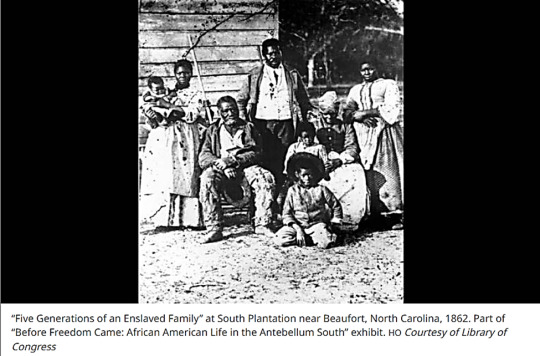
This excellent article from the Miami Herald, looks at some of the previously unreported objections Florida had to the AP African American Studies course.

“It’s not really about the course right? It’s kind of about putting down Black struggles for equality and freedom that have been going on for centuries at this point in time and making them into something that they are not through this kind of distorted rightist lens."
--Alexander Weheliye, African American studies professor, Brown University

When Florida rejected a new Advanced Placement course on African American Studies, state officials said they objected to the study of several concepts — like reparations, the Black Lives Matter movement and “queer theory.” But the state did not say that in many instances, its reviewers also made objections in the state’s attempt to sanitize aspects of slavery and the plight of African Americans throughout history, according to a Miami Herald/Tampa Bay Times review of internal state comments. For example, a lesson in the Advanced Placement course focused on how Europeans benefited from trading enslaved people and the materials enslaved laborers produced. The state objected to the content, saying the instructional approach “may lead to a viewpoint of an ‘oppressor vs. oppressed’ based solely on race or ethnicity.” In another lesson about the beginnings of slavery, the course delved into how tens of thousands of enslaved Africans had been “removed from the continent to work on Portuguese-colonized Atlantic islands and in Europe” and how those “plantations became a model for slave-based economy in the Americans.” In response, the state raised concerns that the unit “may not address the internal slave trade/system within Africa” and that it “may only present one side of this issue and may not offer any opposing viewpoints or other perspectives on the subject.” “There is no other perspective on slavery other than it was brutal,” said Mary Pattillo, a sociology professor and the department chair of Black Studies at Northwestern University. Pattillo is one of several scholars the Herald/Times interviewed during its review of the state’s comments about the AP African American Studies curriculum. “It was exploitative, it dehumanized Black people, it expropriated their labor and wealth for generations to come. There is no other side to that in African American studies. If there’s another side, it may be in some other field. I don’t know what field that is because I would argue there is no other side to that in higher education,” Pattillo said. Alexander Weheliye, African American studies professor at Brown University, said the evaluators’ comments on the units about slavery were a “complete distortion” and “whitewashing” of what happened historically. “It’s really trying to go back to an earlier historical moment, where slavery was mainly depicted by white historians through a white perspective. So to say that the enslaved and the sister African nations and kingdoms and white colonizers and enslavers were the same really misrecognizes the fundamentals of the situation,” Weheliye said. [emphasis added]
The entire article is well worth reading, and I encourage people to do so.
80 notes
·
View notes
Text


A picture of my day + a reminder of the evil that exists in American history
#law school#criminal law#history#american history#dark history#slavery#election 2024#us elections#us history#college#studyblr#study break#study#psychology#books#university#library#book#reading#collegeblr#university studyspo#uni blogging#black history#African American history#lawyer#JD#Juris Doctor#doctorate degree#doctorate#graduate school
16 notes
·
View notes
Text

#books#education#reading#african spirituality#african american#psychics#healers#thesagittarianmind#study#black power#visionaries#black men#black history#black women
10 notes
·
View notes
Text
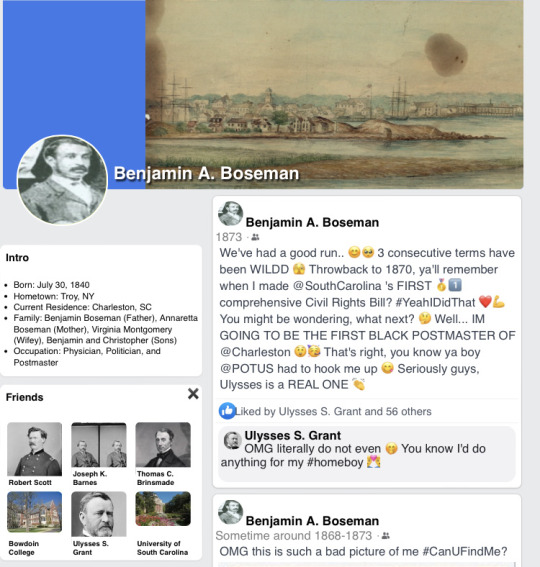
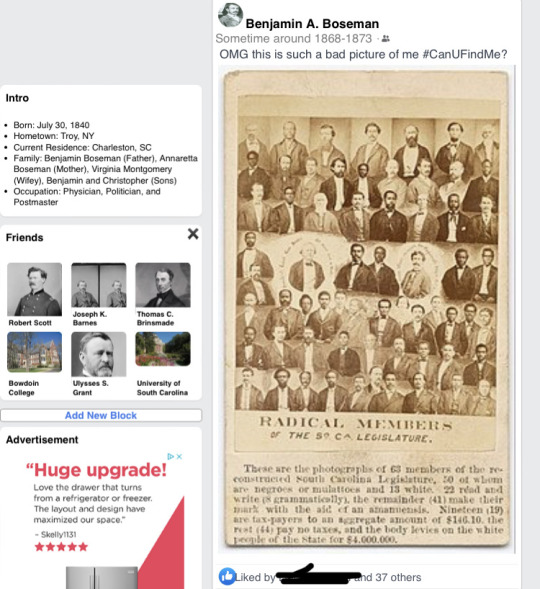
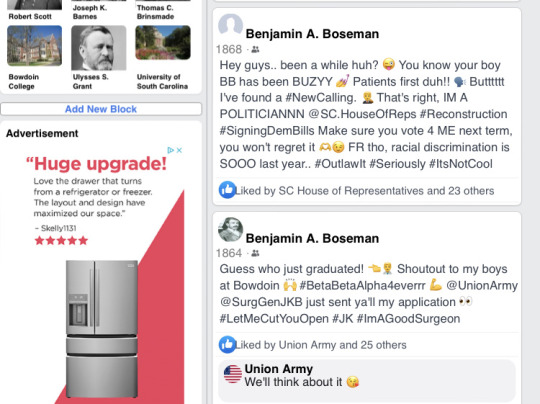

Y’all my classes made fake social media profiles/posts as Reconstruction Era black politicians and this shit had me DYING 😂😂😂
#teacher life#love my job#black history#African American studies#reconstruction#favorite period in us history
36 notes
·
View notes
